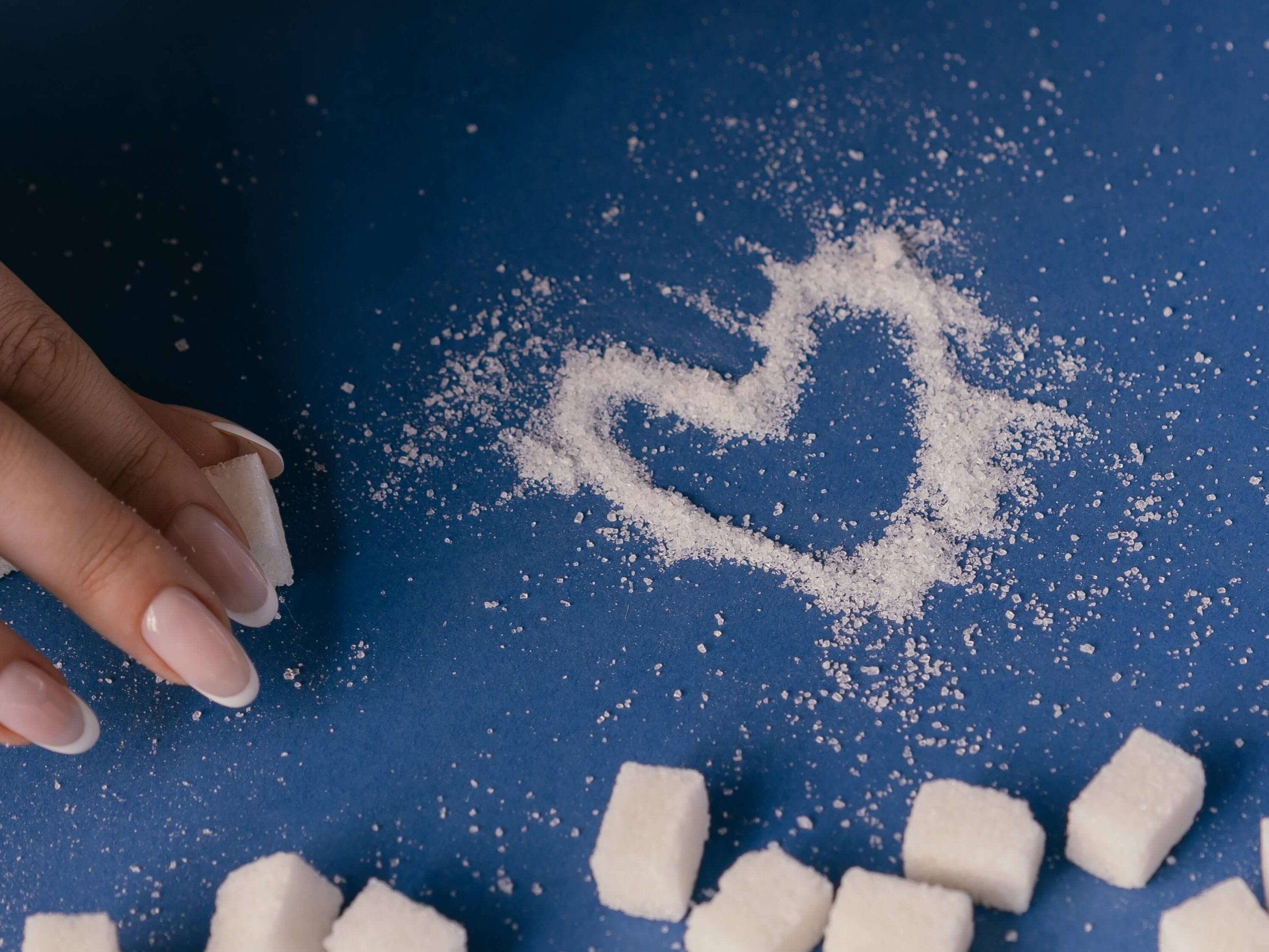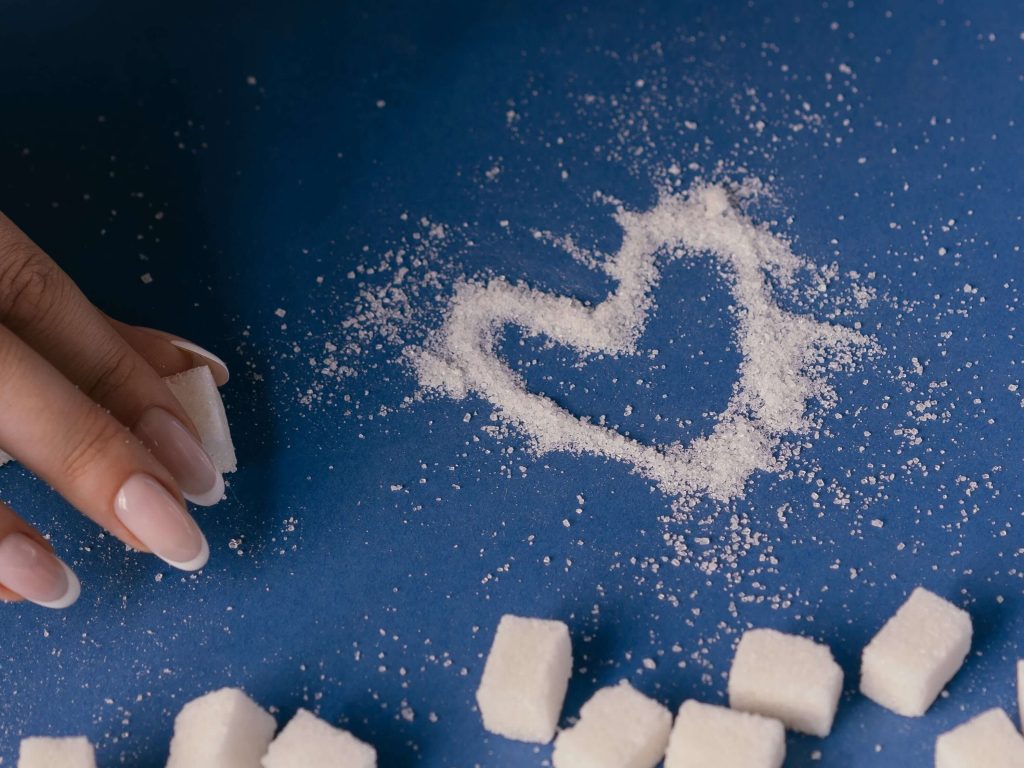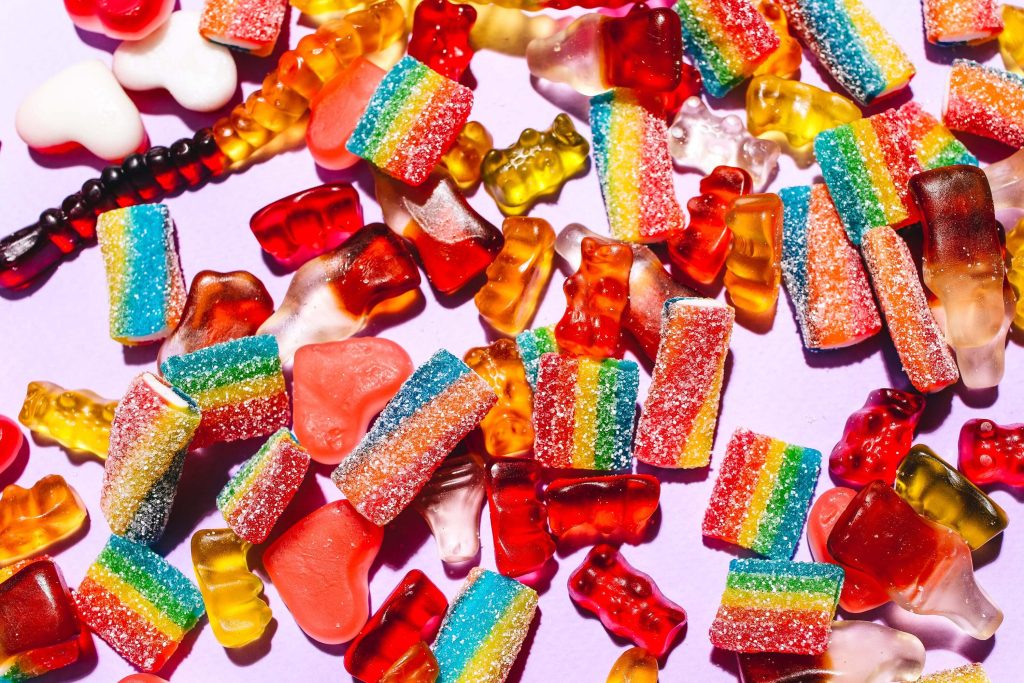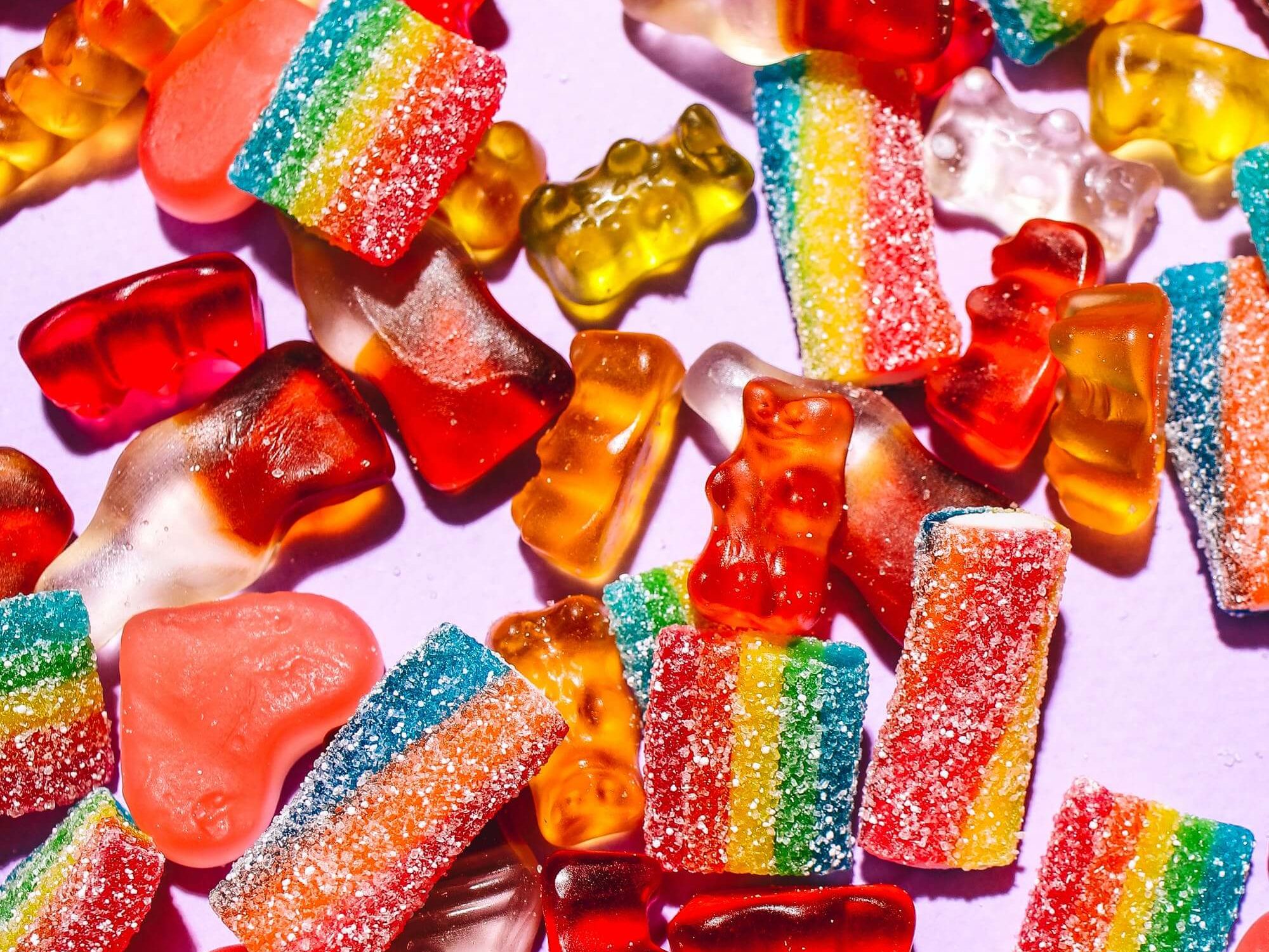
Is Sugar Poisonous? What Does Science Say and What Should You Do?


Is Sugar Poisonous? What Does Science Say and What Should You Do?
Introduction
In May 2009, Dr. Robert Lustig gave a controversial but credible lecture called Sugar: The Bitter Truth at the University of California San Francisco. As of 2023, the 1.5-hour lecture has been played 14 million times. These are impressive numbers for a 90-minute lecture on the biochemistry of a substance regularly consumed by millions of people worldwide.
Multiple times in the video, Dr. Lustig refers to sugar as both “toxic” and “poisonous”, even calling it “evil”. This begs the question, is sugar really as harmful as Dr. Lustig claims? Possibly, the lecture was more hyped for attention than a balanced review of the literature.
Below, we dive into the evidence on sugar, and what potential health consequences it might have. However, it is important to note that the dose can make the poison – people consume sugar for many reasons, and not all are bad!
Foods containing sugar are important parts of celebrations, cultural meals, and can absolutely be a component of a healthy diet. In fact, millions of people every year eat sugar without being poisoned.
There is no doubt that these food-related experiences are important for fostering community, which are essential parts of your overall happiness and health.
What we are really diving into is the health impacts of sugar when it is consumed in excess, and to equip you with the knowledge to make an informed decision when it comes to your health.

Is Sugar Poisonous?
There is no doubt that sugar tastes great. Yet, in recent years, more people have become aware of the harmful effects of consuming too much of it . In fact, the World Health Organization has recommended that we limit added sugars to less than 5% of our daily calories.
This advice comes from a growing body of evidence suggesting that too much sugar can impact health. Despite all of this, there are so many mixed messages on how sugar impacts health – from advertisements, health groups, and social media.
When Dr. Lustig mentions sugar, he isn’t just talking about the white granulated type often added to our morning coffee. He mainly refers to fructose, such as in high-fructose corn syrup, which, even without Dr. Lustig’s influence, has earned a reputation as a vilified food additive.
So, what are the different types of sugar, and which ones should we be looking out for? The two main types of simple sugar here include glucose and fructose.
- Glucose is a simple sugar that acts as the primary fuel source for your body. It is found in various types of food, including fruits, vegetables, and starches. It is the end-product of carbohydrate digestion, meaning that your body breaks down more complex molecules to create it. Glucose is easily absorbed into the bloodstream, allowing it to be transported to different cells and tissues that can use it for energy.
- Fructose is another simple sugar, found naturally in fruits, vegetables, agave syrup, and honey. It is also a component of table sugar and high-fructose corn syrup – commonly used as sweeteners in processed foods and beverages. Compared to glucose, fructose needs to be metabolized by the liver and has a different metabolic pathway. Fructose also doesn’t trigger satiety unlike glucose, so it’s very easy to overeat fructose-sweetened food. Because it requires liver processing, body cells prefer it less compared to glucose for energy.
- High-fructose corn syrup (HFCS) is an artificial sweetener commonly used in processed foods. It is composed of 55% fructose and 45% glucose, making it almost identical to refined sugar. It has often been a topic of debate and concern, with some people considering it worse than natural fructose or sucrose.
- Sucrose is 50% glucose and 50% fructose. You can find it in table sugar, fruits, and vegetables. Each molecule has a glucose bound to a fructose, which will get digested into glucose and fructose in your gut.
So, what effects do these sugars have on our body? And how do they achieve these effects?
Oftentimes, these negative health impacts are not due to the sugar itself, but rather the overconsumption of these products. Refined sugars and HFCS lack essential nutrients like protein, vitamins, minerals, antioxidants, and fiber. Consequently, they displace more nutritious dietary components or are overconsumed in amounts that exceed our dietary needs.
However, the poisonous effect of sugar does not center on the consumption of these “empty calories”. Instead, Dr. Lustig contends that (fructose) sugar possesses distinctive properties, especially when it comes to fructose, making it uniquely harmful to the body.
When the liver receives large amounts of fructose rapidly, it converts much of it to fat. This process appears to promote insulin resistance, a key issue in obesity, heart disease, and type 2 diabetes.
Mixed evidence suggests that excess fructose consumption might also increase blood pressure and uric acid, thus the risk of gout. There is evidence it might have other health impacts, which we will break down below.

What Are the Negative Health Effects of Sugar?
1) Heart Health
The American Heart Association (AHA) has recommended limiting sugars to no more than 5-7% of total calories per day. This comes from evidence of an increased risk for cardiovascular disease with excessive consumption. But the type of sugar you consume might be important.
When more than 20% of your daily intake comes from simple sugars, it can increase blood triglycerides. Triglycerides contain both fat and sugar molecules (glycerol), and when elevated can be a risk factor for cardiovascular disease. AHA has pointed out that avoiding excessive fructose is one way to reduce triglycerides.
Research looking at sugar effects on other cholesterol parameters and heart health has been inconsistent. Some studies have reported increases in LDL (the “bad” cholesterol) with high-sugar diets, while others have not found this link. These mixed results are also found when it comes to raising blood pressure.
But what about when it comes to high sugar and dying from cardiovascular disease? One study found that many American adults consume much more added sugars than what should be part of a healthy diet. This was linked with an increased risk of dying from heart-related problems.
Overall, it seems that normal sugar consumption within a balanced diet does not drastically increase your risk for cardiovascular disease. But, when it is in the form of simple sugars and consumed in excess, it might raise triglyceride levels. Importantly, too much sugar can cause weight gain and inflammation, both of which can have detrimental impacts on heart health.
2) Blood Sugar
Glucose and fructose can impact blood sugar levels, but they do so in different ways:
Glucose can rapidly enter your bloodstream and cause a quick increase in blood glucose levels (typically referred to as “blood sugar). To manage this sudden rise in blood sugar, your body releases a hormone called insulin, which helps transport the glucose into cells for energy or storage.
This insulin response can cause a subsequent drop in blood sugar levels, leading to a “sugar crash”, which may leave you feeling tired or hungry.
Unlike glucose, fructose has a relatively low glycemic index (which means it has a slower, and less pronounced effect on blood glucose). When you consume fructose, your liver metabolizes it and converts the fructose into glucose, glycogen (storage glucose), or fat.
While fructose lacks the immediate blood sugar spike, too much fructose makes the liver insulin-resistant and worsens blood sugar regulation .
Both too much glucose or fructose can cause metabolic issues by impacting insulin function and glucose regulation. Over time, this can increase your risk of developing blood sugar issues and prediabetes.
3) Inflammation
Too much sugar, especially fructose, is linked to chronic, low-grade inflammation in the body. This inflammation can interfere with normal metabolism and contribute to health issues. It can also impact the way that your body responds to insulin.
High sugar intake and high blood glucose can cause your body to produce substances called advanced glycation end products (AGEs). These result from the reaction between sugars and proteins in the body. AGEs can induce inflammation and oxidative stress, which can damage tissues and cells.
Too much sugar can also heighten oxidative stress, which is an imbalance between the production of harmful free radicals and your body’s ability to neutralize them. All of these mechanisms can increase your risk for health complications over time.

4) Obesity
Obviously, too many sugar calories increase your risk for obesity and health-related issues.
Excess glucose first gets stored as glycogen in the liver and muscles. But when these stores are full, excess glucose is converted into fat and stored in fat tissue.
Fructose, on the other hand, is more readily converted into fat in the liver. Too many triglycerides from fructose increase your risk of developing non-alcoholic fatty liver disease, a condition often associated with obesity.
Too much sugar can also impact hormones in your body that are involved in fat regulation and appetite control, leptin and ghrelin. When these hormones are dysregulated, it can contribute to obesity by increasing hunger and food intake.
5) Mental Health and Cognition
There are also connections between eating high-sugar foods and mental health conditions. But the correlative evidence here can be tricky to extrapolate – are people eating more sugar because they are depressed, or is sugar intake causing depression?
One study tried to find out the answer by looking at diet and mental health during different time points. They found a link between depression episodes during periods of high sugar intake. While we may not completely understand how this happens, there are some potential links.
For one, sugar can affect the growth of a molecule in the brain related to depression . This molecule, brain-derived neurotrophic factor (BDNF), plays a crucial role in the growth, development, and maintenance of nerve cells.
It also promotes neuroplasticity – the brain’s ability to adapt, change, and reorganize in response to learning. High sugar consumption is linked to lower levels of BDNF, and low levels are linked to cognitive dysfunction and many mental health conditions.
Your brain uses more calories than any other organs in your body, mainly glucose. So, brain function and brain health are highly sensitive to major fluctuations in blood glucose.
Sugar consumption can cause blood sugar roller coasters, affecting your mood, energy levels, and cognitive function. After the initial sugar rush, dropping blood sugar levels can lead to irritability, fatigue, and mood swings.
Fructose and byproducts of the liver’s metabolism of fructose may increase inflammation and oxidative stress in the brain more so than glucose.
Altogether, most agree that lower sugar intake may have positive effects on mental health.

6) ADHD
Some studies have found that higher sugar intake was linked to a greater likelihood of experiencing ADHD symptoms. Another one observed that unhealthy diet patterns, with high amounts of refined sugar and saturated fat, were linked to an increased risk for ADHD.
Most studies done on this topic specifically look at the impact of sugar-sweetened beverages (like soda). These added sugars may lead to issues with insulin secretion, blood sugar crashes, and hyperactivity behaviors by increasing adrenaline. These acute effects can cause temporary worsening of ADHD symptoms.
Chronically, researchers think that neurotransmitter pathways might be one way sugar can impact the condition. Excessive sugar might increase dopamine release, a neurotransmitter that is dysregulated in ADHD.
This might reduce the number of receptors in the brain and cause increased sugar intake to compensate. Over time, the brain’s response to sugar decreases and can cause ADHD behaviors.
Another big factor is that sugar tastes good. When kids consume it when they are young, they develop a preference for the taste. This can make them susceptible to consuming too much of it over time.
It also provides empty calories, which might hinder proper growth and development. Combined, these early-life factors can play a vital role in shaping future food preferences.
7) Gut Issues
Sugar can impact the digestive tract in two big ways – alter the diversity of your gut bacteria and change the composition of your gut lining.
High sugar consumption can change the kinds and functions of bacteria in your gut. Some harmful gut bacteria thrive in high-sugar environments, promoting inflammation. It can also reduce the number of short-chain-fatty-acid-producing gut bacteria, which help with the immune system in your digestive tract.
When these bacteria are low, your gut immune system can become less robust. This can make it easier for harmful bacteria to get through and cause inflammation. Gut inflammation can impact how your digestive tract functions, and even make digestive diseases (like irritable bowel syndrome) more severe.
Is Sugar Addictive?
Our brain plays a big role in why we enjoy eating sugary foods. We find sugar rewarding for two main reasons – for nutritional value, and for its sweet taste.
Why Would Your Body Reward You for Eating Poison?
As hunter-gatherers, storing fat to prepare for future famine was beneficial for survival. And fructose was only found in seasonal fruits, cane, and honeycombs in the wild. This may explain why fructose-containing foods tend to be addictive and easy to overeat.
Back then, these foods were also nutrient-dense and high in flavonoids, which were beneficial to eat a lot of. Eating large amounts of wild fruits that are only available a few weeks of the year is relatively harmless; digging into ice cream and sweets every night is not.

How Sugar Addiction Works in the Brain
There are two opposing pathways in your brain that influence sugar and caloric intake.
- The hypothalamus, a part of the brain, controls energy intake. Glucose tells the hypothalamus to send satiety signals, whereas fructose reduces satiety and causes you to eat more.
- The reward pathway encourages us to eat foods that enhance your survival by making you feel good about it.
Neurotransmitters, chemical signals in the brain, affect this second pathway and impact how much we enjoy and taste food. The reward pathway involves dopamine, serotonin, and endocannabinoids. Eating high-sugar food can cause our brains to release dopamine.
And, the more we enjoy the taste of that specific food the more dopamine is released. These palatable foods can activate this reward system, making us seek more of it despite not needing the additional calories.
Dopamine is a neurotransmitter that makes us feel good, and your brain is wired to remember things that elicit these responses. This can become a cycle – you eat sugar, your brain releases dopamine, you feel happy, and then you want more sugar.
Another neurotransmitter affected by sugar is serotonin. Serotonin plays an important role in mood regulation and well-being. Eating sugary foods can temporarily boost brain serotonin levels, which can cause you to feel happier and more relaxed.
Over time, your brain becomes accustomed to these surges in dopamine and serotonin. This reinforcement can cause you to consume more sugar to achieve the same pleasurable feelings, like how people become addicted to other types of substances.
There have even been suggestions that added sugars can be as addictive as substances like cocaine, nicotine, alcohol, and caffeine. Some people report stronger sugar cravings after quitting cigarettes, which might help explain why many gain weight when they stop.
And just like with substance addiction, your brain can develop a tolerance to the effects of sugar over time . This means that you need to consume more sugar to experience the same pleasurable sensations and cause dependence to maintain normal mood and energy levels.
However, it is important to note that these addictive-like effects seem to occur when sugar is consumed intermittently or in binges, but does not seem to be the case when it is available freely and regularly .
Should You Absolutely Quit Sugar?

The internet could very well be at war about this. Sugar haters say all sugar is the devil, while some jacked fitness influencers post videos of themselves eating dessert.
The studies are also mixed, obviously with some possible biases from food industry sponsorship. Also, typically when the evidence is mixed, it means the findings affect some more so than others.
The short answer is that it depends on your individual circumstances and tendencies.
These include:
- Your tendency for addiction or the use of anything addictive (food, alcohol, sex, work, or drugs) to manage your uncomfortable emotions. This tendency indicates pre-existing imbalances in the brain that could get worse with sugar.
- Your personality, whether you are an all-or-none person or a “some in moderation” person.
- Your current metabolic health. Is your blood sugar overall well-controlled or all over the place? Are your blood lipids in healthy ranges? A fit, active, and well-muscled person will better tolerate sugar intake than a less active person with less carbohydrate tolerance.
- Your overall calorie intake. Some sugar in an overall caloric deficit is less harmful than in an overall caloric surplus. The jacked fitness influencers you see eating dessert count their calories.
- Any negative reactions to sugar. For example, some people get hungrier, headaches, brain fog, stomach upsets, or sugar crashes after eating sugar.
For some, going sugar-free can be really helpful! This is especially true if you can’t seem to regulate your blood sugar without going off fructose for a little while, or if you can’t seem to stop yourself with some sugary foods.
On the other hand, most people can strike a balance. Enjoying sugary foods in moderation, without any health impacts. The key here is to be mindful of your consumption and maintain self-control. Finding the right approach to sugar depends on your personal relationship with it, and how it affects your well-being.
In moderate amounts, like enjoying small portions of dessert on special occasions, probably won’t cause you any health issues. But, regular and excessive consumption of these treats can.
The continuous caloric surplus and metabolic impacts of these molecules can impact how well your body functions. So occasional indulgences are manageable for most, as long as overall dietary habits are health-conscious.
Meanwhile, it’s always beneficial to improve your overall metabolic health by choosing the right nutritional strategies for you and by exercising. This will mitigate any harm of occasionally enjoying sugar. Learn more about this in the Ultimate Nutrition Bible.
References
- Wang GJ. Impact of sugar on the body brain and behavior. Front Biosci. 2018;23(12):2255-2266. doi:10.2741/4704
- World Health Organization. Sugars Intake for Adults and Children.; 2015. Accessed November 3, 2023. https://iris.who.int/bitstream/handle/10665/149782/9789241549028_eng.pdf?sequence=1
- Kummer C. “high-fructose” just sounds bad. Atl Mon. Published online September 20, 2010. Accessed November 3, 2023. https://www.theatlantic.com/health/archive/2010/09/high-fructose-just-sounds-bad/63238/
- Hantzidiamantis PJ, Lappin SL. Physiology, Glucose. Published online 2023.
- Hantzidiamantis PJ, Lappin SL. Physiology, Glucose. StatPearls Publishing; 2022.
- Dholariya SJ, Orrick JA. Biochemistry, Fructose Metabolism. StatPearls Publishing; 2022.
- Duffey KJ, Popkin BM. High-fructose corn syrup: is this what’s for dinner? Am J Clin Nutr. 2008;88(6):1722S-1732S. doi:10.3945/ajcn.2008.25825c
- White JS. Straight talk about high-fructose corn syrup: what it is and what it ain’t. Am J Clin Nutr. 2008;88(6):1716S-1721S. doi:10.3945/ajcn.2008.25825b
- Moeller SM, Fryhofer SA, Osbahr AJ III, Robinowitz CB, for the Council on Science and Public Health, American Medical Association. The effects of high fructose syrup. J Am Coll Nutr. 2009;28(6):619-626. doi:10.1080/07315724.2009.10719794
- Rizkalla SW. Health implications of fructose consumption: A review of recent data. Nutr Metab (Lond). 2010;7(1):82. doi:10.1186/1743-7075-7-82
- Johnson RJ, Lanaspa MA, Sanchez-Lozada LG, et al. The fructose survival hypothesis for obesity. Philos Trans R Soc Lond B Biol Sci. 2023;378(1885). doi:10.1098/rstb.2022.0230
- Klein AV, Kiat H. The mechanisms underlying fructose-induced hypertension: A review. J Hypertens. 2015;33(5):912-920. doi:10.1097/hjh.0000000000000551
- Johnson RK, Appel LJ, Brands M, et al. Dietary sugars intake and cardiovascular health: A scientific statement from the American Heart Association. Circulation. 2009;120(11):1011-1020. doi:10.1161/circulationaha.109.192627
- Lowndes J, Sinnett S, Yu Z, Rippe J. The effects of fructose-containing sugars on weight, body composition and cardiometabolic risk factors when consumed at up to the 90th percentile population consumption level for fructose. Nutrients. 2014;6(8):3153-3168. doi:10.3390/nu6083153
- Rippe J, Angelopoulos T. Relationship between added sugars consumption and chronic disease risk factors: Current understanding. Nutrients. 2016;8(11):697. doi:10.3390/nu8110697
- Marckmann P, Raben A, Astrup A. Ad libitum intake of low-fat diets rich in either starchy foods or sucrose: Effects on blood lipids, factor VII coagulant activity, and fibrinogen. Metabolism. 2000;49(6):731-735. doi:10.1053/meta.2000.6237
- Maersk M, Belza A, Stødkilde-Jørgensen H, et al. Sucrose-sweetened beverages increase fat storage in the liver, muscle, and visceral fat depot: a 6-mo randomized intervention study. Am J Clin Nutr. 2012;95(2):283-289. doi:10.3945/ajcn.111.022533
- Miller M, Stone NJ, Ballantyne C, et al. Triglycerides and cardiovascular disease: A scientific statement from the American heart association. Circulation. 2011;123(20):2292-2333. doi:10.1161/cir.0b013e3182160726
- Feig DI, Soletsky B, Johnson RJ. Effect of allopurinol on blood pressure of adolescents with newly diagnosed essential hypertension: A randomized trial. JAMA. 2008;300(8):924. doi:10.1001/jama.300.8.924
- Nguyen S, Choi HK, Lustig RH, Hsu CY. Sugar-sweetened beverages, serum uric acid, and blood pressure in adolescents. J Pediatr. 2009;154(6):807-813. doi:10.1016/j.jpeds.2009.01.015
- Bremer AA, Auinger P, Byrd RS. Relationship between insulin resistance–associated metabolic parameters and anthropometric measurements with sugar-sweetened beverage intake and physical activity levels in US adolescents: Findings from the 1999-2004 national health and nutrition examination survey. Arch Pediatr Adolesc Med. 2009;163(4):328. doi:10.1001/archpediatrics.2009.21
- Yang Q, Zhang Z, Gregg EW, Flanders WD, Merritt R, Hu FB. Added sugar intake and cardiovascular diseases mortality among US adults. JAMA Intern Med. 2014;174(4):516. doi:10.1001/jamainternmed.2013.13563
- Sievenpiper JL, de Souza RJ, Cozma AI, Chiavaroli L, Ha V, Mirrahimi A. Fructose vs. glucose and metabolism: Do the metabolic differences matter? Curr Opin Lipidol. 2014;25(1):8-19. doi:10.1097/mol.0000000000000042
- Mantantzis K, Schlaghecken F, Sünram-Lea SI, Maylor EA. Sugar rush or sugar crash? A meta-analysis of carbohydrate effects on mood. Neurosci Biobehav Rev. 2019;101:45-67. doi:10.1016/j.neubiorev.2019.03.016
- Eckstein ML, Brockfeld A, Haupt S, et al. Acute metabolic responses to glucose and fructose supplementation in healthy individuals: A double-blind randomized crossover placebo-controlled trial. Nutrients. 2021;13(11):4095. doi:10.3390/nu13114095
- Bohannon NV, Karam JH, Forsham PH. Endocrine responses to sugar ingestion in man. Advantages of fructose over sucrose and glucose. J Am Diet Assoc. 1980;76(6).
- ter Horst KW, Schene MR, Holman R, Romijn JA, Serlie MJ. Effect of fructose consumption on insulin sensitivity in nondiabetic subjects: a systematic review and meta-analysis of diet-intervention trials. Am J Clin Nutr. 2016;104(6):1562-1576. doi:10.3945/ajcn.116.137786
- Ma X, Nan F, Liang H, et al. Excessive intake of sugar: An accomplice of inflammation. Front Immunol. 2022;13. doi:10.3389/fimmu.2022.988481
- Anwar S, Khan S, Almatroudi A, et al. A review on mechanism of inhibition of advanced glycation end products formation by plant derived polyphenolic compounds. Mol Biol Rep. 2021;48(1):787-805. doi:10.1007/s11033-020-06084-0
- Aragno M, Mastrocola R. Dietary sugars and endogenous formation of advanced glycation endproducts: Emerging mechanisms of disease. Nutrients. 2017;9(4):385. doi:10.3390/nu9040385
- Dhar I, Prasad K. Oxidative stress as a mechanism of added sugar-induced cardiovascular disease. Int J Angiol. 2014;23(04):217-226. doi:10.1055/s-0034-1387169
- Magriplis E, Michas G, Petridi E, et al. Dietary sugar intake and its association with obesity in children and adolescents. Children (Basel). 2021;8(8):676. doi:10.3390/children8080676
- Johnson RJ, Sánchez-Lozada LG, Andrews P, Lanaspa MA. Perspective: A historical and scientific perspective of sugar and its relation with obesity and diabetes. Adv Nutr. 2017;8(3):412-422. doi:10.3945/an.116.014654
- Yeung AY, Tadi P. Physiology, Obesity Neurohormonal Appetite and Satiety Control. StatPearls Publishing; 2023.
- Suga A, Hirano T, Kageyama H, et al. Effects of fructose and glucose on plasma leptin, insulin, and insulin resistance in lean and VMH-lesioned obese rats. Am J Physiol Endocrinol Metab. 2000;278(4):E677-E683. doi:10.1152/ajpendo.2000.278.4.e677
- Knüppel A, Shipley MJ, Llewellyn CH, Brunner EJ. Sugar intake from sweet food and beverages, common mental disorder and depression: prospective findings from the Whitehall II study. Sci Rep. 2017;7(1). doi:10.1038/s41598-017-05649-7
- Jeffery RW, Linde JA, Simon GE, et al. Reported food choices in older women in relation to body mass index and depressive symptoms. Appetite. 2009;52(1):238-240. doi:10.1016/j.appet.2008.08.008
- Sen S, Duman R, Sanacora G. Serum brain-derived neurotrophic factor, depression, and antidepressant medications: Meta-analyses and implications. Biol Psychiatry. 2008;64(6):527-532. doi:10.1016/j.biopsych.2008.05.005
- Heyward FD, Walton RG, Carle MS, Coleman MA, Garvey WT, Sweatt JD. Adult mice maintained on a high-fat diet exhibit object location memory deficits and reduced hippocampal SIRT1 gene expression. Neurobiol Learn Mem. 2012;98(1):25-32. doi:10.1016/j.nlm.2012.04.005
- Molteni R, Barnard RJ, Ying Z, Roberts CK, Gómez-Pinilla F. A high-fat, refined sugar diet reduces hippocampal brain-derived neurotrophic factor, neuronal plasticity, and learning. Neuroscience. 2002;112(4):803-814. doi:10.1016/s0306-4522(02)00123-9
- Schwartz NS, Clutter WE, Shah SD, Cryer PE. Glycemic thresholds for activation of glucose counterregulatory systems are higher than the threshold for symptoms. J Clin Invest. 1987;79(3):777-781. doi:10.1172/jci112884
- Spagnuolo MS, Iossa S, Cigliano L. Sweet but bitter: Focus on fructose impact on brain function in rodent models. Nutrients. 2020;13(1):1. doi:10.3390/nu13010001
- Farsad-Naeimi A, Asjodi F, Omidian M, et al. Sugar consumption, sugar sweetened beverages and Attention Deficit Hyperactivity Disorder: A systematic review and meta-analysis. Complement Ther Med. 2020;53(102512):102512. doi:10.1016/j.ctim.2020.102512
- Del-Ponte B, Quinte GC, Cruz S, Grellert M, Santos IS. Dietary patterns and attention deficit/hyperactivity disorder (ADHD): A systematic review and meta-analysis. J Affect Disord. 2019;252:160-173. doi:10.1016/j.jad.2019.04.061
- Yu CJ, Du JC, Chiou HC, et al. Sugar-sweetened beverage consumption is adversely associated with childhood attention deficit/hyperactivity disorder. Int J Environ Res Public Health. 2016;13(7):678. doi:10.3390/ijerph13070678
- Dykman KD, Dykman RA. Effect of nutritional supplements on Attentional-Deficit Hyperactivity Disorder. Integrative Physiological and Behavioral Science. 1998;33(1):49-60. doi:10.1007/bf02688675
- Johnson RJ, Gold MS, Johnson DR, et al. Attention-Deficit/Hyperactivity Disorder: Is it time to Reappraise the Role of Sugar Consumption? Postgrad Med. 2011;123(5):39-49. doi:10.3810/pgm.2011.09.2458
- Paglia L. The sweet danger of added sugars. Eur J Paediatr Dent. 2019;20(2). doi:10.23804/ejpd.2019.20.02.01
- Arnone D, Chabot C, Heba AC, et al. Sugars and gastrointestinal health. Clin Gastroenterol Hepatol. 2022;20(9):1912-1924.e7. doi:10.1016/j.cgh.2021.12.011
- Fajstova A, Galanova N, Coufal S, et al. Diet rich in simple sugars promotes pro-inflammatory response via gut Microbiota alteration and TLR4 signaling. Cells. 2020;9(12):2701. doi:10.3390/cells9122701
- Portincasa P, Bonfrate L, Vacca M, et al. Gut Microbiota and short chain fatty acids: Implications in glucose homeostasis. Int J Mol Sci. 2022;23(3):1105. doi:10.3390/ijms23031105
- Khan S, Waliullah S, Godfrey V, et al. Dietary simple sugars alter microbial ecology in the gut and promote colitis in mice. Sci Transl Med. 2020;12(567). doi:10.1126/scitranslmed.aay6218
- Blundell JE, Gibbons C, Beaulieu K, et al. The drive to eat in homo sapiens: Energy expenditure drives energy intake. Physiol Behav. 2020;219(112846):112846. doi:10.1016/j.physbeh.2020.112846
- Page KA, Melrose AJ. Brain, hormone and appetite responses to glucose versus fructose. Curr Opin Behav Sci. 2016;9:111-117. doi:10.1016/j.cobeha.2016.03.002
- DiNicolantonio JJ, O’Keefe JH, Wilson WL. Sugar addiction: is it real? A narrative review. Br J Sports Med. 2018;52(14):910-913. doi:10.1136/bjsports-2017-097971
- Wiss DA, Avena N, Rada P. Sugar addiction: From evolution to revolution. Front Psychiatry. 2018;9. doi:10.3389/fpsyt.2018.00545
- Avena NM, Rada P, Hoebel BG. Evidence for sugar addiction: Behavioral and neurochemical effects of intermittent, excessive sugar intake. Neurosci Biobehav Rev. 2008;32(1):20-39. doi:10.1016/j.neubiorev.2007.04.019
- Jabeen B, Haleem DJ. Desensitization of pre and post synaptic 5-HT-1A receptor responses following long term consumption of sugar rich diet: implications for sugar-induced obesity. Pak J Pharm Sci. 2008;21(4). Accessed November 3, 2023. https://pubmed.ncbi.nlm.nih.gov/18930850/
- Olszewski PK, Wood EL, Klockars A, Levine AS. Excessive consumption of sugar: An insatiable drive for reward. Curr Nutr Rep. 2019;8(2):120-128. doi:10.1007/s13668-019-0270-5
